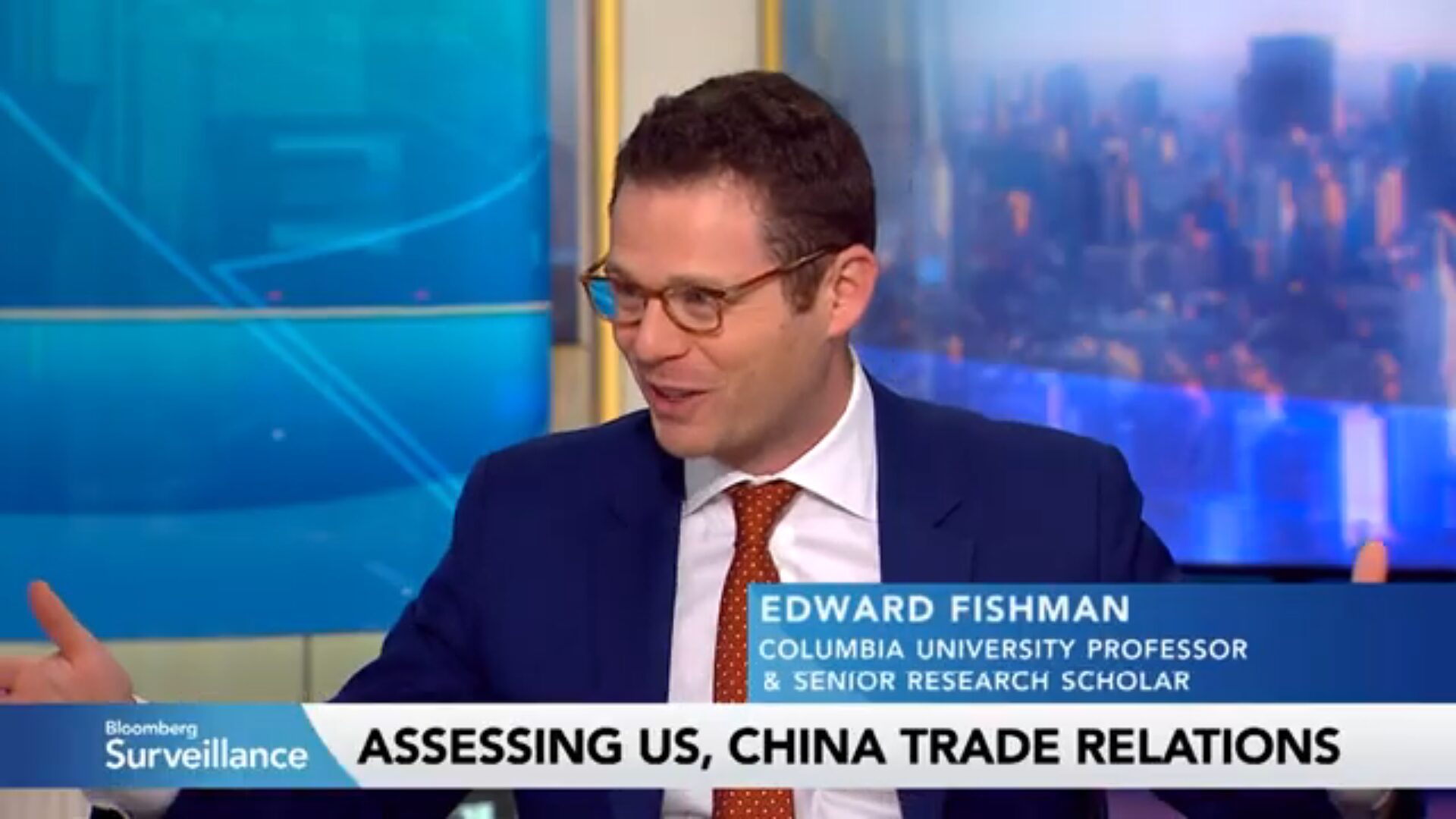
Edward Fishman on Bloomberg: Global Energy Policy
Edward Fishman joins Bloomberg on October 30, 2025. Edward Fishman is one of the world’s foremost experts on economic statecraft, with deep experience shaping U.S.…
Thought Leader: Edward Fishman

On Sunday, with the status of our environment in my mind, I arrived in Lisbon, Portugal for the United Nations Ocean Conference, co-hosted by the Governments of Kenya and Portugal. This conference is aimed at addressing many of the deep-rooted problems of our societies, which will require common shared solutions that are anchored in the Sustainable Development Goals.
I spent days leading up to the conference thinking about issues plaguing our society, recent topics like Tren Maya, Trans Mountain Pipeline, Big Oil, and Carbon Offsets. Most recently, I have been focused on how the promises of carbon targets don’t align with pipelines.
When will an inconvenient truth stop being an inconvenient truth and just become the truth? I have been wrestling with that question more and more lately.
This past spring, Canada’s federal government recommitted — if it ever really committed in the first place — to reducing national carbon emissions 40% below 2005 levels by the year 2030. Canada’s long-term aim is to produce net-zero emissions by 2050. “Net-zero” is a handy, catch-all way of saying the fossil-fuel industry will reduce or absorb as many carbon emissions as it releases.
The truth is this simply won’t work. The inconvenient part of that truth is that it’s impossible to reduce emissions, whether by 2030 or 2050, while at the same time approving, financing, and building more pipelines. One of these is not like the other, and the differences cannot be reconciled.
And now there’s a new report, from the World Resources Institute and the UK-based climate think tank Energy and Climate Intelligence Unit, that shows a wide gap between ambition and what is actually attainable. Canadaʼs emissions-reduction targets are “highly insufficient,” the report notes, for the country to do its part in holding global warming below 1.5° Celsius, the threshold beyond which climate scientists say will result in catastrophic damage to our already changing climate.
I care about this because I have personally seen with my own eyes what a unique and rare ecosystem we live in, and the threats it faces. At SeaLegacy, we have been working alongside First Nations groups in BC’s Great Bear Rainforest and across the world to raise awareness of the issues, so we can identify and collectively address potential solutions.
This past month, Cristina Mittermeier and I were blessed and profoundly grateful to have honorary doctorates bestowed on us by BC’s Simon Fraser University. An honorary doctorate is the highest honour conferred by the university and is awarded each year, in the university’s words, “to distinguished individuals in recognition of their scholarly, scientific or artistic achievement, and in recognition of exceptional contribution to the public good.” Recipients’ achievements, “celebrate the university’s values and serve as an inspiration to our students, graduands and our community.”
It was truly humbling to be saluted at the Convocation ceremony alongside our fellow recipients by ceremonial bagpipes. What really made us emotional, though, was what came next: a symphony of traditional drumming by the Squamish First Nations. It is a sound that always makes me feel deeply connected to the roots of this country.
The issues that face all of us today are simple. It does not take an advanced science degree to know that it is a bad idea to transport more than three million barrels a day of the dirtiest oil in the world, through some of the country’s most environmentally sensitive regions, and expect that everything will turn out fine.
The federal government claims it is committed to fighting climate change, with announcement after announcement at a never-ending procession of climate conferences, but then tramples indigenous rights and their own carbon commitments by building more pipelines, bigger pipelines and more expensive pipelines, even as costs threaten to spiral out of control. If the future truly lies in renewable energy, it makes no sense to keep doubling down on pipelines whose sole purpose is transporting fossil fuels.
We make small adjustments, but that’s all. We talk about carbon offsets, but then we delay them until 2030 or 2050, because adjusting our lives in a more timely way is inconvenient.
Vice-president Al Gore coined his famous term “an inconvenient truth” nearly 30 years ago, in his book Earth in the Balance, and it is still true. If anything, it is even more true today than it was then. Are we ready to inconvenience ourselves to save the climate?
I have traveled with vice-president Gore on several occasions, once to Antarctica together, and I have come to realize we are living in a very real and frightening reality. The truth is we have caused an incredible amount of damage already. We are already seeing the ice pack melt in the polar regions; we have already recorded the lowest ice on record. Polar bear populations will disappear in the next hundred years. The damage is already done.
And it is going to get worse.
In April, Canada’s environment commissioner Jerry DeMarco warned that Canada may not be able to reach its 2030 emissions reduction targets. The government’s plan to target hydrogen as an alternative to fossil fuels is based on unrealistic assumptions about the role hydrogen will play in the years ahead. DeMarco said the government’s hydrogen strategy is based on “overly optimistic” assumptions — his words — about hydrogen and compromises the credibility of the entire plan to reduce our carbon footprint.
The truth is that the oil industry has shown it is not prepared to slow oil production as a way to roll back carbon emissions. Since the industry has no intention of reaching zero-carbon emissions targets, no matter what all those flashy TV ads say, they came up with “net-zero,” the idea that we reduce carbon from total emissions to create the illusion of zero-emissions — but always at some later date, in the distant future.
Burn now, pay later will not work. Now we know the flaws of carbon offsets, it is time to get real about climate change. This is no longer an inconvenient truth. It is the actual truth.
Edward Fishman on Bloomberg: Global Energy Policy
Edward Fishman joins Bloomberg on October 30, 2025. Edward Fishman is one of the world’s foremost experts on economic statecraft, with deep experience shaping U.S.…
Thought Leader: Edward Fishman
Peter Zeihan: Trump Pulls the Trigger on Russia
After months of being played by the Russians, it seems US President Donald Trump has had enough. On 23 October the United States has fully…
Thought Leader: Peter Zeihan
On this episode of Simply Money presented by Allworth Financial, Bob and Brian welcome former Cleveland Fed President Dr. Loretta Mester for a rare insider’s…
Thought Leader: Loretta Mester

